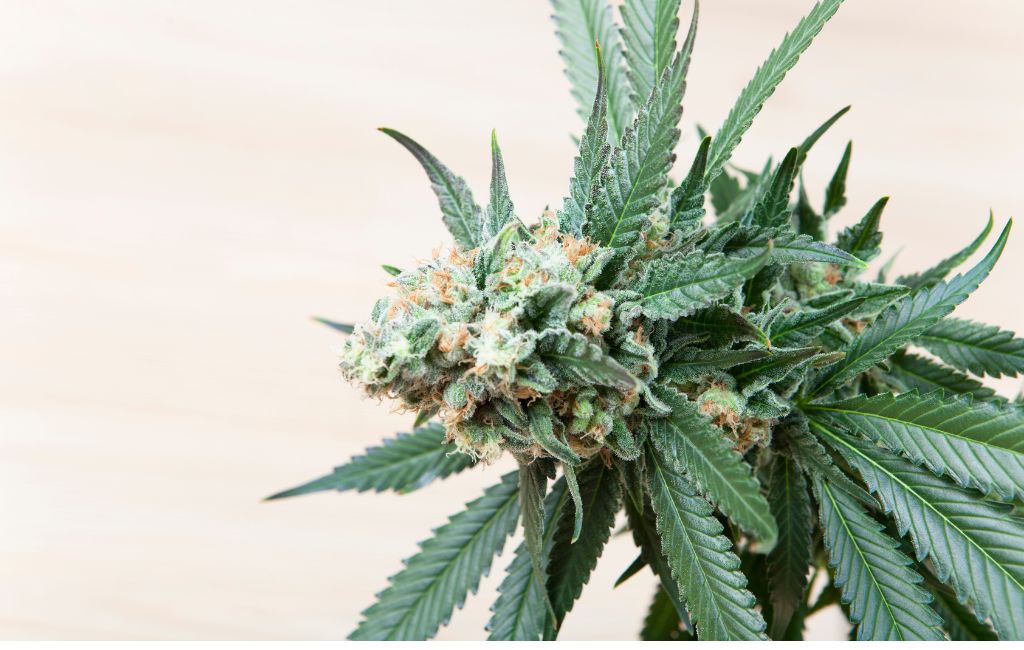THCa Flower for Natural Wellness Relief
In recent years, the interest in natural wellness solutions has surged, with many individuals seeking alternatives to traditional pharmaceuticals. One such alternative that has gained significant attention is THCa flower. This article explores the benefits, uses, and scientific backing of THCa flower for natural wellness relief.
Understanding THCa
THCa, or tetrahydrocannabinolic acid, is a non-psychoactive cannabinoid found in raw and live cannabis. Unlike THC, which is known for its psychoactive effects, THCa does not produce a “high.” Instead, it offers a range of potential health benefits that make it an attractive option for those seeking natural wellness solutions.
How THCa Works
THCa interacts with the body’s endocannabinoid system (ECS), which plays a crucial role in maintaining homeostasis. The ECS consists of receptors, enzymes, and endocannabinoids that regulate various physiological processes, including pain, inflammation, and immune response. By interacting with these receptors, THCa can help modulate these processes and promote overall well-being.
Health Benefits of THCa Flower
Research and anecdotal evidence suggest that THCa flower may offer several health benefits. Here are some of the most notable:
- Anti-inflammatory Properties: THCa has been shown to possess anti-inflammatory properties, making it a potential option for individuals dealing with chronic inflammation and related conditions.
- Pain Relief: Many users report that THCa flower helps alleviate pain without the psychoactive effects associated with THC. This makes it a viable option for those seeking pain relief without the “high.”
- Neuroprotective Effects: Preliminary studies suggest that THCa may have neuroprotective properties, which could be beneficial for individuals with neurodegenerative conditions.
- Anti-nausea and Appetite Stimulation: THCa has been found to help reduce nausea and stimulate appetite, making it useful for individuals undergoing treatments like chemotherapy.
Scientific Studies and Evidence
Several studies have explored the potential benefits of THCa. For instance, a study published in the “British Journal of Pharmacology” found that THCa exhibited anti-inflammatory and neuroprotective effects in animal models. Another study in the “Journal of Clinical Investigation” highlighted THCa’s potential in reducing nausea and vomiting.
While more research is needed to fully understand the extent of THCa’s benefits, these studies provide a promising foundation for its use in natural wellness relief.
Real-Life Examples and Case Studies
Many individuals have shared their positive experiences with THCa flower. For example, Jane, a 45-year-old woman with chronic arthritis, reported significant pain relief and improved mobility after incorporating THCa flower into her wellness routine. Similarly, Mark, a cancer patient undergoing chemotherapy, found that THCa helped reduce his nausea and improve his appetite.
These real-life examples highlight the potential of THCa flower to provide natural relief for various conditions, improving the quality of life for many users.
How to Use THCa Flower
There are several ways to incorporate THCa flower into your wellness routine:
- Raw Consumption: THCa flower can be consumed raw, such as in smoothies or salads, to preserve its non-psychoactive properties.
- Juicing: Juicing fresh cannabis leaves and flowers is another popular method to obtain THCa.
- Tinctures and Oils: THCa tinctures and oils offer a convenient way to consume THCa, allowing for precise dosing.
- Topicals: THCa-infused topicals can be applied directly to the skin for localized relief from pain and inflammation.
Legal Considerations
The legal status of THCa flower varies by region. In some areas, it is considered legal due to its non-psychoactive nature, while in others, it may be regulated similarly to THC. It is important to research and understand the legal status of THCa in your area before incorporating it into your wellness routine.
Conclusion
THCa flower presents a promising natural alternative for those seeking relief from various health conditions. With its anti-inflammatory, pain-relieving, and neuroprotective properties, THCa offers a range of potential benefits without the psychoactive effects of THC. While more research is needed to fully understand its capabilities, the existing evidence and real-life examples provide a compelling case for its use in natural wellness relief.
